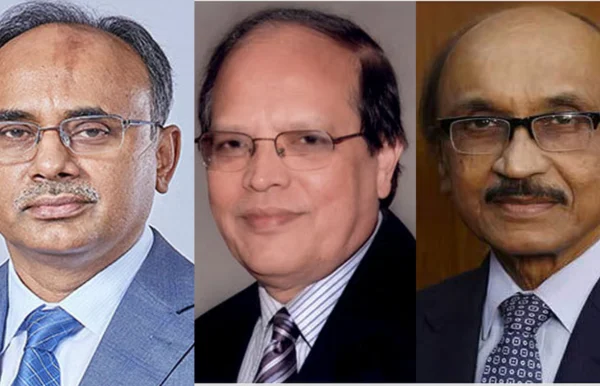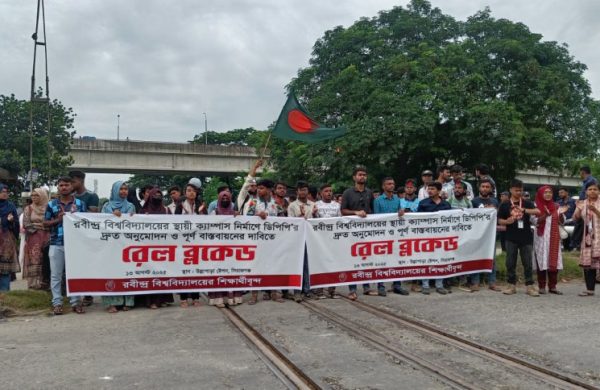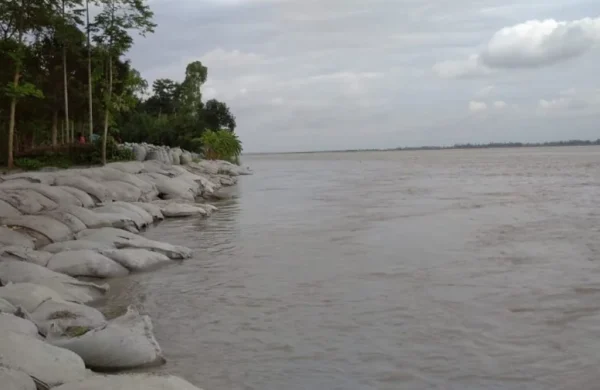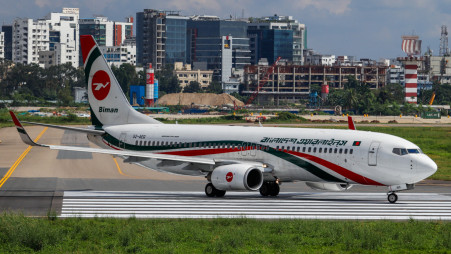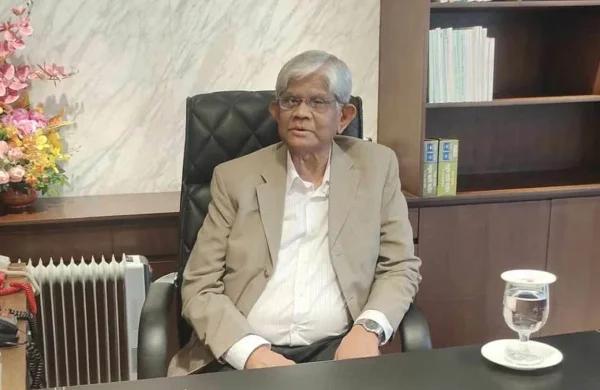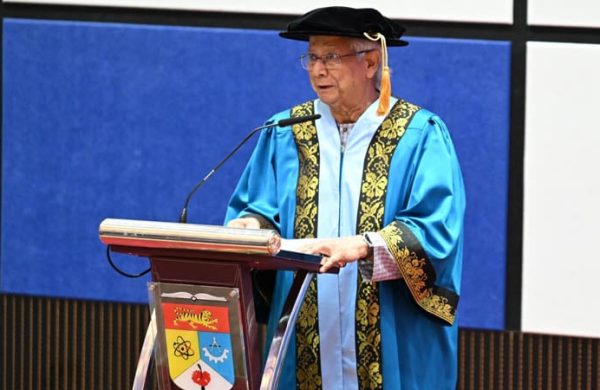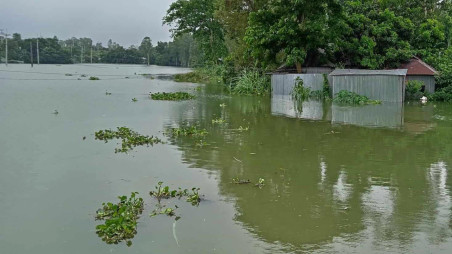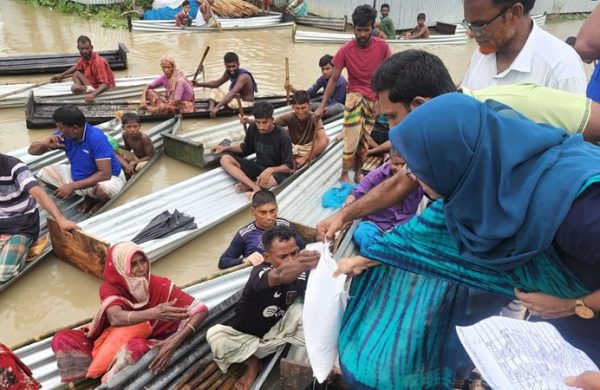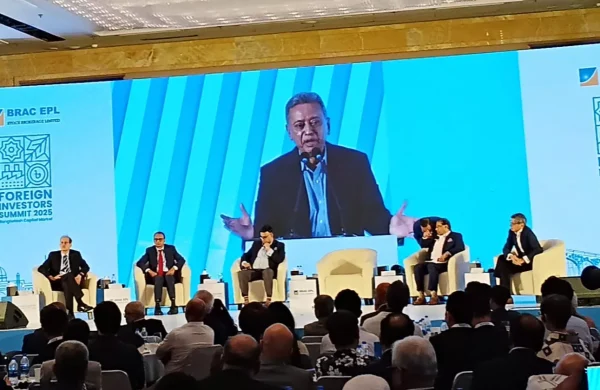Bangladesh committed to building inclusive, climate resilient economy: CA
- Update Time : Monday, April 21, 2025
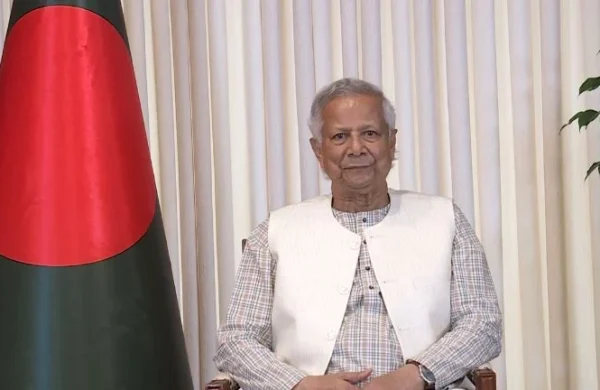
TDS Desk:
Chief Adviser Professor Muhammad Yunus on Monday said Bangladesh is committed to building an inclusive and climate resilient economy despite having climate and urban challenges.
“Bangladesh faces acute urban challenges, climate vulnerability, infrastructure gap and social inequality. Yet, we remain committed to building an inclusive and climate resilient economy,” he said in a video message played at the inaugural session of the Economic and Social Commission for Asia and the Pacific (ESCAP) in Bangkok.
Highlighting the challenges that his government faced in the last eight months, he said the interim government assumed office on August 8, 2024 following a mass uprising led by students.
“We inherited a devastating economy left by the previous autocratic regime,” Prof Yunus said.
Since then, he said the interim government has launched the reform process and initiatives to restore discipline in the financial sector and have succeeded in many directions including reducing inflation to 9.3 percent in February, which was the lowest in two year’s history.
“We have also seen a record remittance coming in, investor confidence is returning and we are moving steadily to our stability and growth,” the chief adviser said.
He mentioned that the government has just held a four-day international investment summit where over 400 investors from 50 countries participated.
About sustainable development, Prof Yunus said sustainable urban development is now at the centre for Bangladesh’s progress, reiterating commitment to building an inclusive and climate resilient economy.
“As we prepare for LDC graduation next year, we must ensure that our urban transformation is not economically sound but also socially inclusive and environmentally sustainable,” he said.
Noting that climate change remains the gravest threat to Bangladesh, the Noble laureate economist said rising sea level, flood and cyclone severely impact cities and called for enhanced global cooperation and effective climate financing to support Bangladesh’s adaptation efforts.
In response to climate vulnerabilities, Prof Yunus mentioned that Bangladesh is investing in green and climate resilient infrastructures, sustainable housing and nature-based solution.
“Our low-cost housing initiatives support climate vulnerable population, while urban wetland restoration and green building materials are reducing environmental stress,” he added.
Inclusive development remains a top priority for Bangladesh, the chief adviser said, adding: “Our experience in microfinance and social business has shown that financial inclusion is a powerful tool against poverty.”
“We are now applying the same methodology for urban development ensuring that every citizen has access to housing, essential services and economic opportunities,” he said.
He also said Bangladesh is looking forward to working with its global partners to make this happen.
About social business, Prof Yunus said social business is a form of business, that he has been promoting worldwide, plays a crucial role in this effort.
Unlike traditional enterprises, he said social businesses are designed to solve human and environmental problems in a sustainable business way with no intention of making personal profit.
“From healthcare to clean energy, clean water and housing, from communication to information technology – this model has the potential to transform lives,” he said.
The chief adviser urged all the global leaders in general and the Asia and Pacific leaders in particular to work together to build a sustainable world shared by all.
“Challenges like climate change, inequality and urban stress extend beyond national borders making regional cooperation necessary and indispensable,” he recalled.
Prof Yunus advocated for regional and global cooperation in all directions to solve problems together.
In his remarks, the chief adviser also highlighted the “Three Zero Vision” – zero wealth concentration, zero unemployment, and zero net carbon emissions.
He urged the nations of the Asia and Pacific to harness youth potential and innovation to shape a sustainable future.
The eighty-first session of the ESCAP commenced at the United Nations Conference Centre in Bangkok today.
Guided by “Regional cooperation for resilient and sustainable urban development in Asia and the Pacific,” the session brings together 53 member states and nine associate members.
Dr Anisuzzaman Chowdhury, the Special Assistant (State Minister Rank) to the Chief Adviser, is leading the Bangladesh delegation at the ESCAP event.
The ESCAP session provides Bangladesh with a strategic platform to share its experiences, deepen cooperation, and reaffirm its resolve to achieve the 2030 Agenda for sustainable development through inclusive and transformative urban solutions.
The delegation is expected to contribute meaningful insights and forge valuable partnerships during the week-long event


